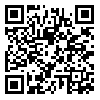Volume 23, Issue 4 (December 2025)
Iranian Rehabilitation Journal 2025, 23(4): 463-472 |
Back to browse issues page
Download citation:
BibTeX | RIS | EndNote | Medlars | ProCite | Reference Manager | RefWorks
Send citation to:



BibTeX | RIS | EndNote | Medlars | ProCite | Reference Manager | RefWorks
Send citation to:
Laftah S A, Hammooz A. Nurse-led Telehealth Follow-up as a Mediator Between Caregiver Burden and Functional Recovery of Stroke Patients. Iranian Rehabilitation Journal 2025; 23 (4) :463-472
URL: http://irj.uswr.ac.ir/article-1-2588-en.html
URL: http://irj.uswr.ac.ir/article-1-2588-en.html
1- Department of Community Health Nursing, College of Nursing, University of Thi-Qar, Thi-Qar, Iraq.
2- Department of Community Health Nursing, College of Nursing, University of AL-Qadisiyah, AL-Qadisiyah, Iraq.
2- Department of Community Health Nursing, College of Nursing, University of AL-Qadisiyah, AL-Qadisiyah, Iraq.
Abstract: (1587 Views)
Objectives: Informal caregivers are crucial in supporting patients with functional disabilities; however, caregiver burden can adversely affect patient recovery. This study aimed to investigate the impact of caregiver burden on the functional recovery of injured individuals and explore the mediating role of telehealth usability.
Methods: A cross-sectional analytical study was conducted with 323 symptomatic caregivers of rehabilitation patients. Validated instruments were utilized: The zarit burden interview (ZBI-12), Telehealth usability questionnaire (TUQ), and Barthel index (BI). Data analysis involved Pearson’s correlation coefficient, multivariate regression, and mediation analysis using the PROCESS macro within structural equation modeling (SEM).
Results: Caregiver burden was negatively associated with both telehealth usability (r=-0.63, P<0.01) and patient functional recovery (r=-0.71, P<0.01). Mediation analysis revealed that telehealth usability significantly mediated the relationship between caregiver burden and patient recovery (indirect effect β=-0.532, P<0.001). Furthermore, caregivers in rural areas reported a higher burden and lower telemedicine utilization.
Discussion: Reducing caregiver burden and enhancing telehealth usability can significantly improve patient rehabilitation outcomes. Investing in caregiver education and ensuring equitable access to virtual healthcare, particularly in rural settings, is strongly recommended.
Methods: A cross-sectional analytical study was conducted with 323 symptomatic caregivers of rehabilitation patients. Validated instruments were utilized: The zarit burden interview (ZBI-12), Telehealth usability questionnaire (TUQ), and Barthel index (BI). Data analysis involved Pearson’s correlation coefficient, multivariate regression, and mediation analysis using the PROCESS macro within structural equation modeling (SEM).
Results: Caregiver burden was negatively associated with both telehealth usability (r=-0.63, P<0.01) and patient functional recovery (r=-0.71, P<0.01). Mediation analysis revealed that telehealth usability significantly mediated the relationship between caregiver burden and patient recovery (indirect effect β=-0.532, P<0.001). Furthermore, caregivers in rural areas reported a higher burden and lower telemedicine utilization.
Discussion: Reducing caregiver burden and enhancing telehealth usability can significantly improve patient rehabilitation outcomes. Investing in caregiver education and ensuring equitable access to virtual healthcare, particularly in rural settings, is strongly recommended.
Keywords: Caregiver burden, Functional recovery, Telehealth usability, Mediation, Informal caregivers, Rural health
Article type: Original Research Articles |
Subject:
Nursing
Received: 2025/06/29 | Accepted: 2025/08/16 | Published: 2025/12/1
Received: 2025/06/29 | Accepted: 2025/08/16 | Published: 2025/12/1
Send email to the article author








